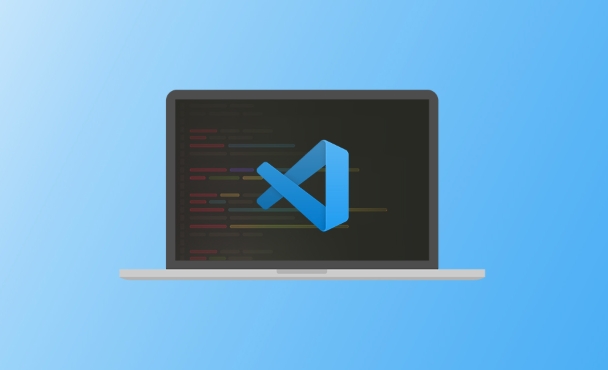If the VSCode extension market cannot be loaded, you can follow the following steps to solve the problem: 1. Check the network connection and proxy settings to ensure that you can access marketplace.visualstudio.com, and clear or configure the proxy if necessary; 2. Clear the cache file and reinstall VSCode, delete the ~/.vscode/cache and temp directories, or reinstall the software; 3. Modify the DNS setting to 8.8.8.8 or replace the domestic mirror source to optimize network resolution; 4. Use the developer tools to view the logs and locate specific errors such as timeout or domain name resolution failure. The above methods can usually solve the problem.

If you find that the Extensions Marketplace cannot load when using VSCode on Linux, this is really annoying. The reason may be network, configuration or permissions issues, but in most cases there are corresponding solutions.

Check network connections and proxy settings
VSCode requires internet access to the extended market. First, make sure that your system can access the Internet normally:

Try to open http://ipnx.cn/link/6f75e53f7550af83f27709d87ab7ab43 in your browser to see if it can load normally.
-
If you use a proxy, you need to check the proxy settings of VSCode:

Run the following command in the terminal to view the proxy settings in the current environment variable:
echo $http_proxy echo $https_proxy
If the proxy is set but has expired, you can temporarily clear:
unset http_proxy unset https_proxy
Or manually set up the proxy in VSCode:
- Open the Command Panel (Ctrl Shift P)
- Enter and select
Preferences: Configure Proxy Settings
Clear VSCode cache and reinstall extended market components
Sometimes the cache file is corrupted and the extension market cannot be loaded. You can try to clean the cache directory:
rm -rf ~/.vscode/cache rm -rf ~/.vscode/temp
If you are installing the official .deb or .rpm package, the path is usually like this. If you are using Snap or Flatpak installation, the path may be different, such as:
~/.var/app/com.visualstudio.code/cache/
In addition, try reinstalling VSCode:
sudo apt remove code sudo apt install code
Or download the latest version from the official website and install it manually.
Check DNS settings or change source
Some users can solve the problem by changing DNS, such as changing it to Google's public DNS:
8.8.8.8 8.8.4.4
If your network restricts certain domain name resolution, you can also try to modify the /etc/resolv.conf file to add the above DNS address.
In addition, the default software source of some Linux distributions may be slow or unstable. It is recommended to switch to domestic mirror sources, such as Alibaba Cloud, Tsinghua Source, etc.
The last detail: See what the log says
VSCode comes with developer tools to check whether there are error messages:
- Open the Command Panel (Ctrl Shift P)
- Enter and select
Developer: Toggle Developer Tools - Switch to the "Network" tab page, refresh the extended market page, and see if there is any request failure
If there is an error like ERR_CONNECTION_TIMED_OUT or ERR_NAME_NOT_RESOLVED , it can basically be determined that it is a network or DNS problem.
Basically these common troubleshooting methods. Most of the time, it can be done by changing the network environment or clearing the cache. Although it is not complicated, it is easy to ignore some small details.
The above is the detailed content of VSCode extensions marketplace not loading on Linux. For more information, please follow other related articles on the PHP Chinese website!

Hot AI Tools

Undress AI Tool
Undress images for free

Undresser.AI Undress
AI-powered app for creating realistic nude photos

AI Clothes Remover
Online AI tool for removing clothes from photos.

Clothoff.io
AI clothes remover

Video Face Swap
Swap faces in any video effortlessly with our completely free AI face swap tool!

Hot Article

Hot Tools

Notepad++7.3.1
Easy-to-use and free code editor

SublimeText3 Chinese version
Chinese version, very easy to use

Zend Studio 13.0.1
Powerful PHP integrated development environment

Dreamweaver CS6
Visual web development tools

SublimeText3 Mac version
God-level code editing software (SublimeText3)

Hot Topics
 How to change the default terminal in vscode settings?
Jul 05, 2025 am 12:35 AM
How to change the default terminal in vscode settings?
Jul 05, 2025 am 12:35 AM
There are three ways to change the default terminal in VSCode: setting through a graphical interface, editing settings.json file, and temporary switching. First, open the settings interface and search for "terminalintegratedshell" and select the terminal path of the corresponding system; secondly, advanced users can edit settings.json to add "terminal.integrated.shell.windows" or "terminal.integrated.shell.osx" fields and escape the path correctly; finally, you can enter "Terminal:SelectD through the command panel
 How do I resolve 'command not found' errors in the VS Code terminal?
Jul 04, 2025 am 12:50 AM
How do I resolve 'command not found' errors in the VS Code terminal?
Jul 04, 2025 am 12:50 AM
1. Confirm whether the command is installed 2. Check the terminal shell type 3. Update the PATH environment variable 4. Restart VSCode or terminal. When you enter a command in the VSCode terminal, you should first check whether the command has been installed correctly and can be verified through other terminals of the system; secondly, confirm the shell type used by VSCode and check its configuration file; then make sure that the path where the command is located has been added to the PATH environment variable, and manually add and reload the configuration if necessary; finally close and reopen the terminal or restart VSCode to make the changes take effect.
 How do I use VS Code's settings sync feature?
Jul 03, 2025 am 12:43 AM
How do I use VS Code's settings sync feature?
Jul 03, 2025 am 12:43 AM
TosyncVSCodesettingsacrossdevices,signinwithaGitHuborMicrosoftaccount,customizewhatgetssynced,andmanuallytriggersyncwhenneeded.First,openVSCodeandsigninviatheprofileiconorCommandPaletteusing"Sync:TurnonSync".Next,choosewhattosyncsuchassetti
 Fixing 'Timed out waiting for the debugger to attach' in VSCode
Jul 08, 2025 am 01:26 AM
Fixing 'Timed out waiting for the debugger to attach' in VSCode
Jul 08, 2025 am 01:26 AM
When the "Timedoutwaitingforthedebuggertoattach" issue occurs, it is usually because the connection is not established correctly in the debugging process. 1. Check whether the launch.json configuration is correct, ensure that the request type is launch or attach and there is no spelling error; 2. Confirm whether the debugger is waiting for the debugger to connect, and add debugpy.wait_for_attach() and other mechanisms; 3. Check whether the port is occupied or firewall restricted, and replace the port or close the occupied process if necessary; 4. Confirm that the port mapping and access permissions are configured correctly in a remote or container environment; 5. Update VSCode, plug-in and debug library versions to solve potential
 What are VS Code workspaces, and how are they used?
Jul 10, 2025 pm 12:33 PM
What are VS Code workspaces, and how are they used?
Jul 10, 2025 pm 12:33 PM
VSCode workspace is a .code-workspace file that saves project-specific configurations. 1. It supports multi-root directory, debug configuration, shortcut key settings and extension recommendations, and is suitable for managing different needs of multiple projects. 2. The main scenarios include multi-project collaboration, customized development environment and team sharing configuration. 3. The creation method is to save the configuration through the menu File>SaveWorkspaceAs.... 4. Notes include distinguishing between .code-workspace and .vscode/settings.json, using relative paths, and avoiding storing sensitive information.
 How to set environment variables for the terminal in VS Code settings on Linux?
Jul 06, 2025 am 12:23 AM
How to set environment variables for the terminal in VS Code settings on Linux?
Jul 06, 2025 am 12:23 AM
There are two ways to set environment variables for VSCode terminals on Linux: one is to use the terminal.integrated.env.linux configuration item to define variables that are only used by VSCode; the other is to modify the shell configuration file to take effect globally. 1. In VSCode, add variables such as "MY_VAR":"my_value" by setting the terminal.integrated.env.linux field. This method only affects the VSCode terminal; 2. Modify shell configuration files such as ~/.bashrc or ~/.zshrc and add exportMY
 How to set environment variables for debugging in vscode settings?
Jul 10, 2025 pm 01:14 PM
How to set environment variables for debugging in vscode settings?
Jul 10, 2025 pm 01:14 PM
To set debug environment variables in VSCode, you need to use the "environment" array configuration in the launch.json file. The specific steps are as follows: 1. Add "environment" array to the debugging configuration of launch.json, and define variables in key-value pairs, such as API_ENDPOINT and DEBUG_MODE; 2. You can load variables through .env files to improve management efficiency, and use envFile to specify file paths in launch.json; 3. If you need to overwrite the system or terminal variables, you can directly redefine them in launch.json; 4. Note that
 Where is the vscode settings.json file located?
Jul 14, 2025 am 01:21 AM
Where is the vscode settings.json file located?
Jul 14, 2025 am 01:21 AM
To access the settings.json file of VSCode, you can directly open it through the command panel (Ctrl Shift P or Cmd Shift P). The default storage location of the file varies according to the operating system. Windows is in %APPDATA%\Code\User\settings.json, macOS is in $HOME/Library/ApplicationSupport/Code/User/settings.json, Linux is in $HOME/.config/Code/User/







